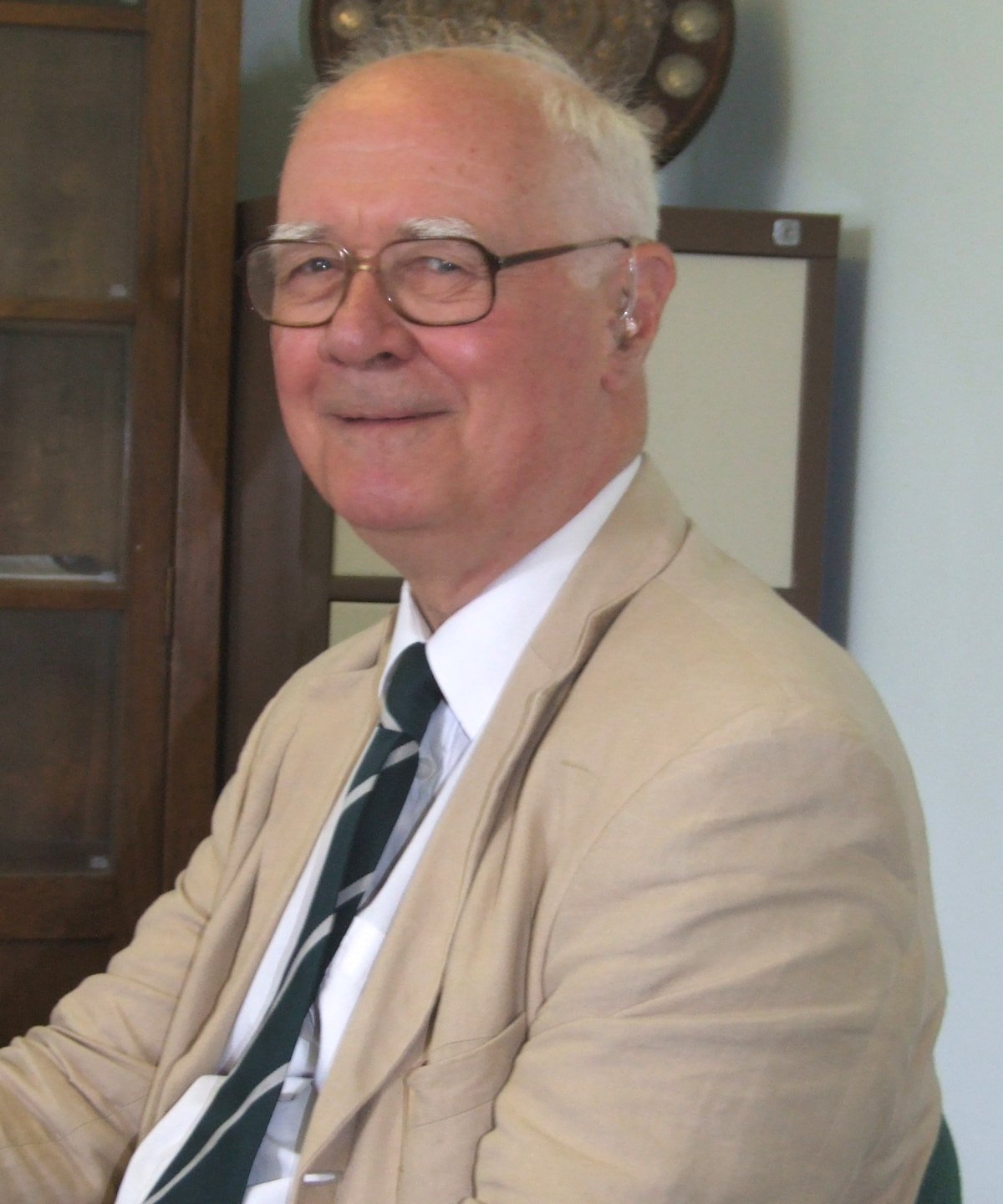Well, it’s because I gladly acknowledge some ideas that are part of process theology, but which I think are not tied to all the details of process thought, and are very illuminating and helpful.

About John Polkinghorne
John Charlton Polkinghorne was an English theoretical physicist, theologian, and Anglican priest. A prominent and leading voice explaining the relationship between science and religion, he was professor of mathematical physics at the University of Cambridge from 1968 to 1979, when he resigned his chair to study for the priesthood, becoming an ordained Anglican priest in 1982.
More quotes from John Polkinghorne
People, and especially theologians, should try to familiarize themselves with scientific ideas. Of course, science is technical in many respects, but there are some very good books that try to set out some of the conceptual structure of science.
physicist, theologian and anglican priest
Evolution, of course, is not something that simply applies to life here on earth; it applies to the whole universe.
physicist, theologian and anglican priest
Whitehead reacted strongly against the idea of God as a cosmic tyrant, one who brings about everything.
physicist, theologian and anglican priest
The physical fabric of the world had to be such as to enable that ten billion year preliminary evolution to produce the raw materials of life. Without it there would not have been the chemical materials to allow life to evolve here on earth.
physicist, theologian and anglican priest
Theologians have a great problem because they’re seeking to speak about God. Since God is the ground of everything that is, there’s a sense in which every human inquiry is grist to the theological mill. Obviously, no theologian can know everything.
physicist, theologian and anglican priest
At present, too much theological thinking is very human-centered.
physicist, theologian and anglican priest
Of course, nobody would deny the importance of human beings for theological thinking, but the time span of history that theologians think about is a few thousand years of human culture rather than the fifteen billion years of the history of the universe.
physicist, theologian and anglican priest
However, as the Eastern churches have always maintained, through Christ creation is intended eventually to share in the life of God, the life of divine nature.
physicist, theologian and anglican priest
After all, the universe required ten billion years of evolution before life was even possible; the evolution of the stars and the evolving of new chemical elements in the nuclear furnaces of the stars were indispensable prerequisites for the generation of life.
physicist, theologian and anglican priest
So Whitehead’s metaphysics doesn’t fit very well on to physics as we understand the process of the world.
physicist, theologian and anglican priest
I think it’s very important to maintain the classical Christian distinction between the Creator and creation.
physicist, theologian and anglican priest
I also think we need to maintain distinctions – the doctrine of creation is different from a scientific cosmology, and we should resist the temptation, which sometimes scientists give in to, to try to assimilate the concepts of theology to the concepts of science.
physicist, theologian and anglican priest
Yes, I was a parish priest for five years. I was a curate in a large working class parish in Bristol and the Vicar of a village in Kent.
physicist, theologian and anglican priest
It is the faithfulness of God that allows epistemology to model ontology.
physicist, theologian and anglican priest
I was very much on the mathematical side, where you probably do your best work before you’re forty-five. Having passed that significant date, I thought I would do something else.
physicist, theologian and anglican priest
I’m a very passionate believer in the unity of knowledge. There is one world of reality – one world of our experience that we’re seeking to describe.
physicist, theologian and anglican priest
Science cannot tell theology how to construct a doctrine of creation, but you can’t construct a doctrine of creation without taking account of the age of the universe and the evolutionary character of cosmic history.
physicist, theologian and anglican priest
Nevertheless, all of us who work in quantum physics believe in the reality of a quantum world, and the reality of quantum entities like protons and electrons.
physicist, theologian and anglican priest
If the experience of science teaches anything, it’s that the world is very strange and surprising. The many revolutions in science have certainly shown that.
physicist, theologian and anglican priest
Chance doesn’t mean meaningless randomness, but historical contingency. This happens rather than that, and that’s the way that novelty, new things, come about.
physicist, theologian and anglican priest
Well, it’s because I gladly acknowledge some ideas that are part of process theology, but which I think are not tied to all the details of process thought, and are very illuminating and helpful.
physicist, theologian and anglican priest
Of course, Einstein was a very great scientist indeed, and I have enormous respect for him, and great admiration for the discoveries he made. But he was very committed to a view of the objectivity of the physical world.
physicist, theologian and anglican priest
Bottom up thinkers try to start from experience and move from experience to understanding. They don’t start with certain general principles they think beforehand are likely to be true; they just hope to find out what reality is like.
physicist, theologian and anglican priest
Those theologians who are beginning to take the doctrine of creation very seriously should pay some attention to science’s story.
physicist, theologian and anglican priest
Quantum theory also tells us that the world is not simply objective; somehow it’s something more subtle than that. In some sense it is veiled from us, but it has a structure that we can understand.
physicist, theologian and anglican priest
I very much enjoyed my career in science. I didn’t leave science because I was disillusioned, but felt I’d done my bit for it after about twenty-five years.
physicist, theologian and anglican priest